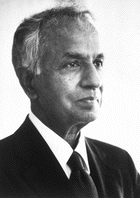A Quote by Edward Gibbon
This variety of objects will suspend, for some time, the course of the narrative; but the interruption will be censured only by those readers who are insensible to the importance of laws and manners, while they peruse, with eager curiosity, the transient intrigues of a court, or the accidental event of a battle.
Related Quotes
Of course I know that the twins are only words on a page, and I'm certainly not the sort of writer who talks to his characters or harbours any illusions about the creative process. But at the same time, I think it's juvenile and arrogant when literary writers compulsively remind their readers that the characters aren't real. People know that already. The challenge is to make an intelligent reader suspend disbelief, to seduce them into the reality of a narrative.
There is no other course but the one we have chosen, except the course of humiliation and darkness, after which there will be no bright sign in the sky or brilliant light on earth? All this will make us more patient and steadfast, and better prepared for the battle which God blesses and which good men support. Then there will only be a glorious conclusion, where a brilliant sun will clear the dust of battle, and where the clouds of battles will be dispelled.
Macroscopic objects, as we see them all around us, are governed by a variety of forces, derived from a variety of approximations to a variety of physical theories. In contrast, the only elements in the construction of black holes are our basic concepts of space and time. They are, thus, almost by definition, the most perfect macroscopic objects there are in the universe.
For the religious, passivism [i.e., objects are obedient to the laws of nature] provides a clear role of God as the author of the laws of nature. If the laws of nature are God's commands for an essentially passive world ..., God also has the power to suspend the laws of nature, and so perform miracles.
Suppose we wonder whether we should trust the deliverances of our basic epistemic competences. If those are indeed our basic competences, then in order properly to satisfy our curiosity we will inevitably rely on one or more of them. So, either we squelch our curiosity or we will have to fall into the circularity or regress to which the skeptic objects.
While, on the one hand, the end of scientific investigation is the discovery of laws, on the other, science will have reached its highest goal when it shall have reduced ultimate laws to one or two, the necessity of which lies outside the sphere of our cognition. These ultimate laws-in the domain of physical science at least-will be the dynamical laws of the relations of matter to number, space, and time. The ultimate data will be number, matter, space, and time themselves. When these relations shall be known, all physical phenomena will be a branch of pure mathematics.
We should start calling this law SCOTUScare ... [T]his Court's two decisions on the Act will surely be remembered through the years ... And the cases will publish forever the discouraging truth that the Supreme Court of the United States favors some laws over others, and is prepared to do whatever it takes to uphold and assist its favorites.
The most reckless sinner against his own conscience has always in the background the consolation that he will go on in this course only this time, or only so long, but that at such a time he will amend. We may be assured that we do not stand clear with our own consciences so long as we determine or project, or even hold it possible, at some future time to alter our course of action.







































